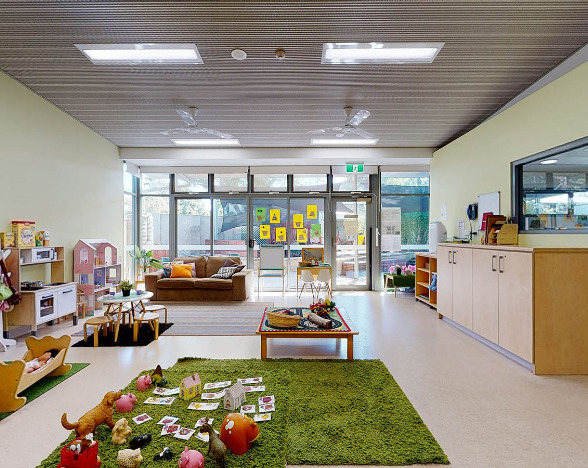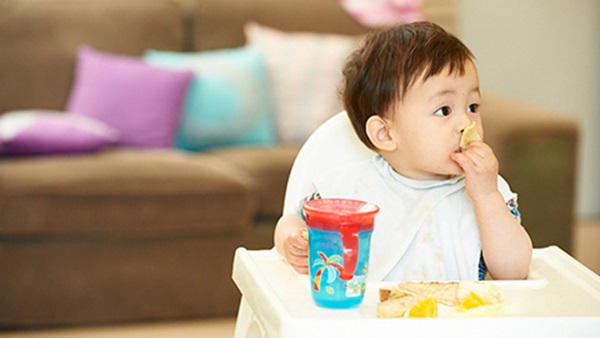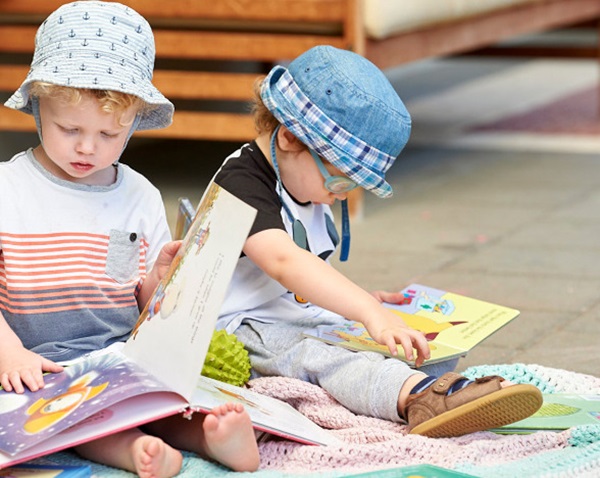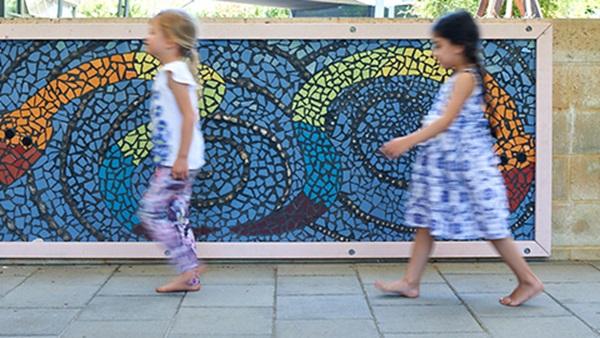
UWA Early Learning Centre
Caring for your child
Nestled in a quiet, leafy corner of the UWA Nedlands campus, the Early Learning Centre is licensed for 100 children per day and offers families a warm and welcoming environment and exceptional facilities.
Our mission
The mission of UWA Early Learning Centre is to provide excellence in early childhood education and care for all children, in partnership with families, in accordance with Education and Care Services National Law, Education and Care Services National Regulations, the National Quality Standard and the National Early Years Learning Framework.
Staff-to-children ratios
We support the importance of low staff-child ratios for all children in our Centre. We offer below child-staff ratios at all times throughout the day, as we employ up to five additional shared educators each day. As per Regulation 123, Education and Care Services National Regulations 2012, the minimum ratio for staff to children are as follows:
- 0-2 year olds 1:4
- 2-3 year olds 1:5
- 3-5 year olds 1:10
Exceeding the National Quality Standard (NQS)
The UWA Early Learning Centre has recently undertaken a rigorous assessment of the quality of their service, against the 2018 National Quality Standard for Early Childhood Education and Care and School Age Care (NQS), conducted by the Education and Care Regulatory Unit. They received Exceeding in all 7 Quality Areas national-quality-standard and received a final rating of Exceeding, taking into account all of the information and evidence available.
Registrations
We are currently accepting registrations for all age groups to commence between January - March 2026.

Virtual tour
-
What we believe
- Warm, responsive relationships are critical to every child’s happiness, health and wellbeing.
- The first five years of life are crucial in shaping a child’s ability to learn and think creatively.
- Children should be encouraged to become active participants in their own learning.
- The most successful curriculum approaches are child focused and supported by ongoing learning and reflection.
- Successful partnerships with families are communicative and mutually respectful.
- Equitability, inclusivity and diversity must be promoted in a genuine and positive manner.
- Connections to the local community should be fostered and maintained.
- A welcoming, calm and aesthetically pleasing setting enables all users of the centre to feel a sense of belonging.
- Responsibility for the natural environment and awareness of sustainability is imperative.
- Commitment to supportive, responsible management; ongoing professional development is vital to the centre’s continued success.
-
Our environment
Our centre is warm and inviting – the large and modern building, entrance and reception area is softened by natural elements such as a variety of trees and plants as well as a large fish tank.
Our commercial-grade kitchen and attached dining room is a lively hub of activity for the most part of the morning. With delicious smells wafting through reception, many families linger to read the daily menu and savour the kitchen’s wonderful aromas. The outdoor spaces include fruit trees and small raised garden beds where vegetables and aromatic herbs are grown and used in the kitchen.
The activity rooms are light and spacious, with muted tones to offer a sense of calmness. Rammed earth walls bring a sense of nature and are an inviting blank canvas for the sensitive display of artworks, murals, photographs and much more. The older children also enjoy the addition of an outdoor art studio, giving them extra space in which to play and create in a sheltered outdoor environment.
The gardens are specifically designed to offer wonderful play and learning opportunities to the children as they are. Each age group’s outdoor area is specifically designed to suit their levels of development, and the areas feature natural elements such as edible gardens, sensory plants, fruit trees, handmade wooden equipment made from re-purposed materials, quiet spaces to sit and reflect, areas that invite active play, musical elements and water play elements.
The adjacent green spaces and beautiful tropical tree grove on the Nedlands campus invite local excursions for the children to investigate, play, gather materials, enjoy nature and explore our local community. This location, and our selection and use of natural materials, is what sets us apart from many other education and care services.
-
Our curriculum
At UWA Early Learning Centre we believe in play- based learning, as children learn most effectively when they actively engage in their surrounding environment and are having fun. Therefore, we value and support a program which facilitates meaningful and stimulating experiences where children can thrive, make their own decisions, use their imagination and enhance their interests.
Our Curriculum is inspired and guided by the unique interests, strengths & actions of all children, as well as by the spontaneous and serendipitous events that occur every day. Out of this arise the foundations for play and learning experiences that stimulate and support children through their own learning journeys. Educators engage in an ongoing process of observing, analysing, planning and reflection to foster each child’s learning and development. We believe that by providing children with freedom of choice and offering a wide variety of opportunities, resources and interactions, we are creating and facilitating a developmentally appropriate curriculum where children will be encouraged to develop at their own pace.
How the curriculum works
Our Curriculum is child-focused and built around children’s individual and group interests.
The Early Years Learning Framework for Australia (EYLF), ‘Belonging, Being & Becoming’, forms the basis of our Curriculum.
We begin by developing a relationship with each child, and with the group as a whole. By knowing the children well – their likes and dislikes, their strengths and interests, their temperament and personality, their culture, their unique development, their own learning style – we are able to program for them both individually and as a group. Being ‘in tune’ with the children in our care, carrying out both formal and informal observations, and communicating with parents, all combine to help staff develop a program for individual children as well as for the group. Whether lasting a minute, an hour, a day or a week, many events, experiences, learning areas and environments will enhance learning for each child.
Storypark online is an early childhood education programming, documentation and communication system we are using here at UWA Early Learning Centre. Our families receive a fortnightly curriculum plan, fortnightly reflections and a daily “story”, all which links to the EYLF. The story is a formal, retrospective program as well as an overall reflection of the day or two days combined. This contains a variety of detail from ongoing learning to spontaneous learning experiences, the main high lights from the day/days are shared with our families. The Reflections, opportunities and possibilities links with the learning experiences that have occurred throughout the week and is linked to the curriculum--‐and the EYLF.
It is important for Educators to evaluate the program in a continual cycle of self--‐reflection and improvement. We may plan to re--‐visit experiences that the children enjoyed; we may plan to repeat experiences in the future that the children weren’t quite ready to explore. We may modify learning areas, extending on the children’s interests. Parent input into and evaluation of our program is always welcomed and is an important part of the process of planning and continual improvement. The “story” is accessible to all families at any time through logging into their Storypark account.
Each child’s online portfolio aims to be a snapshot of each child’s learning journey at UWA Early Learning Centre. Each portfolio will include a variety of learning journeys, an individual cycle of planning, an ongoing developmental milestone assessment and photographs.
The ongoing developmental assessment for the families is to show their child’s learning and development towards the Learning Outcomes and more. This is a document that educators continue to add to throughout the year as the children achieve an outcome – this document is used throughout their journey over the years as they move up in age groups.
These are the different methods of documentation that educators’ use at the Centre:
- Parent & family input
- Daily story
- Fortnightly curriculum plan
- Individual cycle of planning
- Fortnightly reflections Learning journeys – individual and group
- Photographs
- Transcripts of conversations/child notes
- Ongoing developmental milestone assessment
Get in touch
Address: 22 Gordon St, Nedlands (UWA Nedlands Campus)
Phone: 6488 5300
Email: [email protected]
Opening hours: Mon-Fri from 7.45am to 5.45pm



